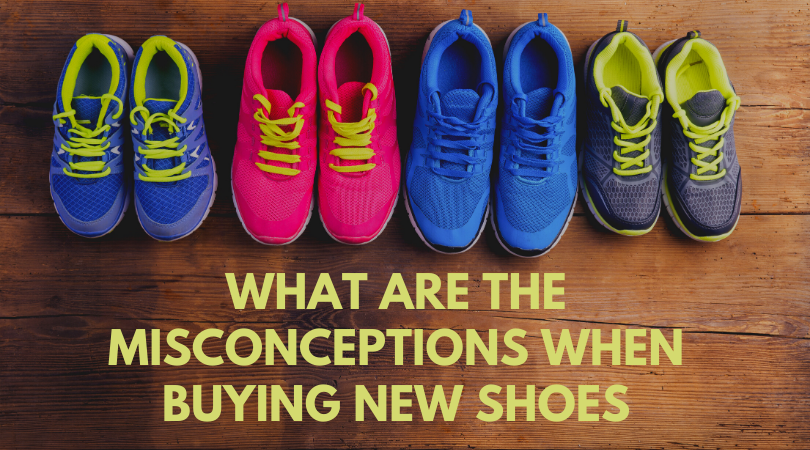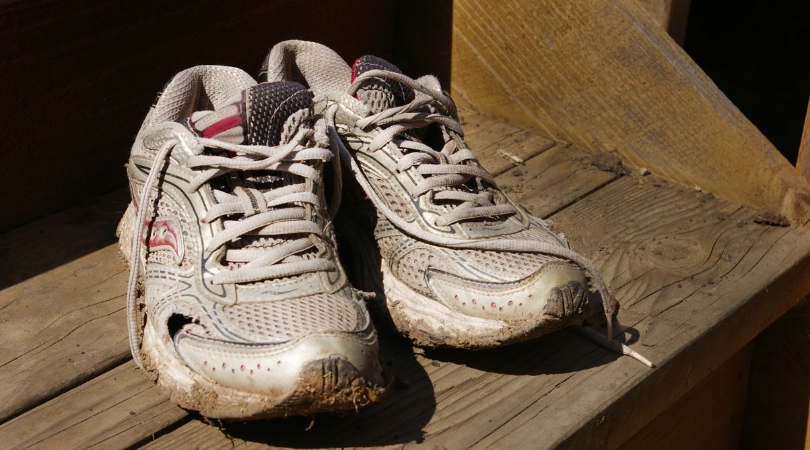What are the misconceptions when buying new shoes

Previously I had JF Esculier on the podcast to discuss the importance of footwear. He was generous enough to share his knowledge on the current evidence regarding injury risk, running performance & shoe type. So today, I thought I would share the key messages I took away from this interview. For the complete interview, including shoes advice relating to plantar fasciitis head to The Run Smarter Podcast.
You do not need to wear different shoe types
Different shoe types would fall within the spectrum of ‘minimalist’ and ‘maximalist’ all offering different levels of support, flexibility, and weight. JF’s advice is that:
“Changing shoe types or alternating shoe types isn’t necessary unless you are injured or want to increase performance. This isn’t saying alternating shoes is BAD but is based on personal preference”.
JF Esculier
It can also be said that keeping to the shoe type you have adapted to and find comfortable will put you at less risk of injury compared to swapping into shoes you are not adapted for.
When it is time for buying new shoes

There are a lot of misconceptions around buying new shoes. Some say it’s when your shoes are too old, worn out and need to be replaced. Some base this on the distance ran in the shoe, others base it on ‘wear & tear’ or ‘loss of cushioning’. JF attempts to clear this up. You want to change your shoe based on 2 elements. 1. If the shoe becomes uncomfortable 2. If it starts changing your running mechanics. This makes sense from an injury perspective and you may need an experienced professional to judge changes in mechanics.
You might not need supportive shoes if you have flat feet
Don’t be fooled by shoe companies judging what shoe you need based on your foot type. JF explains there is no correlation between shoe type, foot type and injury risk. This can be re-enforced with decades of research including the work done by Benno Nigg. Instead, follow the ‘comfort’ model and select the shoe that feels the best when running. If that means you opt in for a supportive shoe, then you have made the right decision.
I agree 100% with all the points listed above. We touch on a few different points in the remainder of the interview, discussing shoe selection for performance, shoes for plantar fasciitis and achilles tendinopathy. To listen to the full interview head to The Run Smarter Podcast.
Relevant Blog posts
- Do I need strong feet for running?
- Do I Need Orthotics To Help My Running?
- Conduct your own shoe assessment
Relevant Podcast episodes
- Is there a right & wrong running shoe? With JF Esculier
- Using shoes as tools to overcome injury? Matt Klein
- Is a carbon fibre shoe right for me? With Simon Bartold
